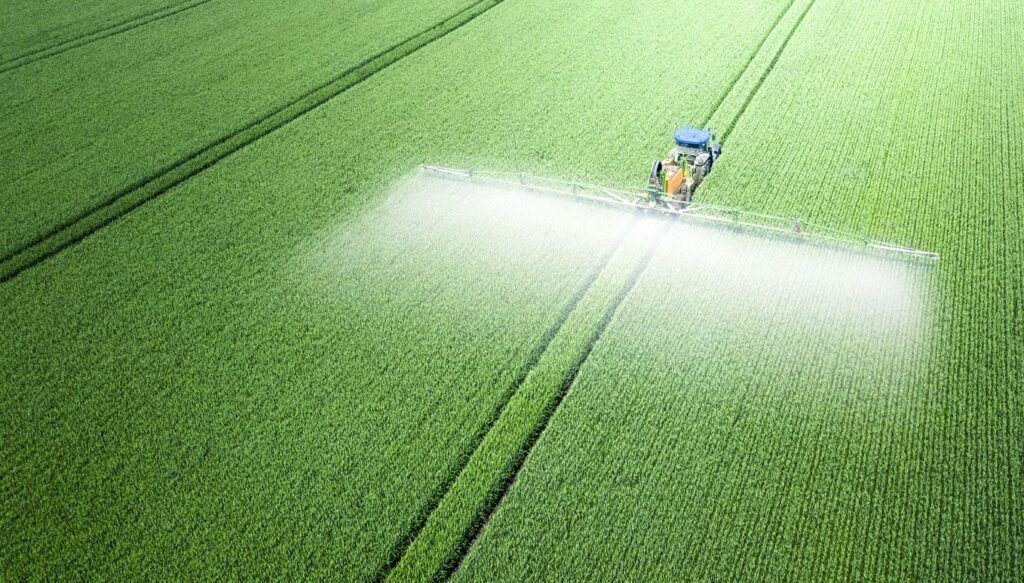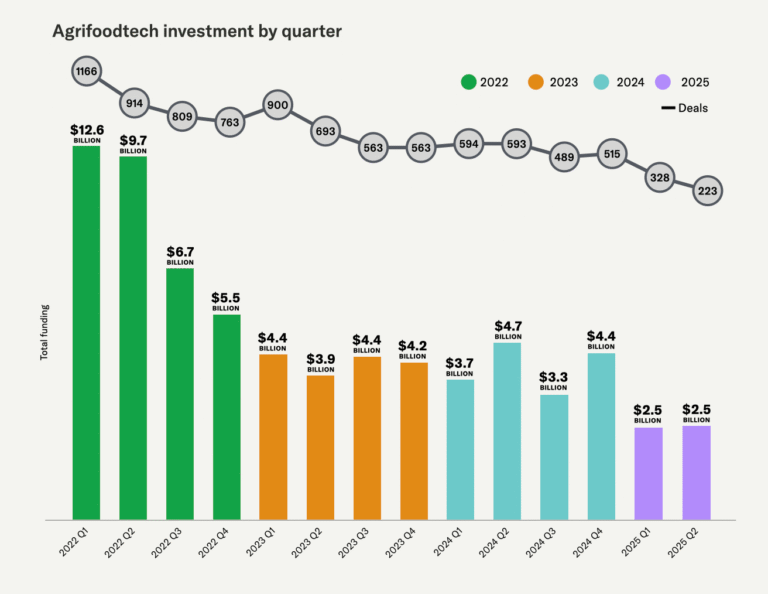
Agrochemicals giant Bayer has responded to a new study from a group of EU and US scientists claiming that low doses of the weed killer glyphosate “cause multiple types of cancer in rats.”
The authors of the study, led by the Cesare Maltoni Cancer Research Center of the Ramazzini Institute, claim it provides “robust evidence supporting International Agency for Research on Cancer’s (IARC) conclusion in 2015 that there is ‘sufficient evidence of carcinogenicity of glyphosate in experimental animals.’”
The study exposed Sprague-Dawley rats to three different glyphosate levels in their drinking water. Researchers employed two glyphosate-based formulations: Roundup BioFlow, used in the EU, and Ranger Pro, used in the US. Both products are made by Bayer.
Daniele Mandrioli, one of the study’s authors and a director at the Cesare Maltoni Cancer Research Center, told AgFunderNews that rat bioassays “are the most predictive toxicological assays for human carcinogens.”
He also noted that, “in the present study we observed effects [of glyphosate] at doses equal or lower than the no adverse effect level (NOAEL) in rodents and other animal models.”

A ‘long history of making misleading claims’
Bayer’s Roundup herbicide, which it inherited from Monsanto when it acquired the company, is the best-known example of a glyphosate-based herbicide.
Bayer sent AgFunderNews the following statement: “While we are still reviewing the report, it is already clear this study has serious methodological flaws, which is consistent with the Ramazzini Institute’s long history of making misleading claims about the safety of various products.
“The US EPA [Environmental Protection Agency] determined past Ramazzini studies did not meet the criteria of scientific quality for consideration in the registration review process.
“In addition, the EPA has retracted risk assessments that relied on Ramazzini Institute data regarding other substances and EFSA has publicly expressed its frustrations with the institute’s lack of transparency after it claimed to find adverse health effects caused by artificial sweeteners.”
In 2010, the EPA put four studies on hold after a report from the National Toxicology Program reviewed results from “some research studies completed by the Ramazzini Institute” and found “differences of opinion between NTP and RI scientists in the diagnosis of certain cancers reported in a study on methanol.”
Studies from the Ramazzini Institute have also come under scrutiny with the European Food Safety Authority, including one examining the impact of sucralose on mice, for which the EFSA concluded that the available data did not support the conclusions of the authors (Soffritti et al., [Soffritti M, 2016]) that sucralose induced haematopoietic neoplasias in male Swiss mice.”
‘Our findings reinforce IARC’s classification of glyphosate’
Ramazzini Institute’s two-year-long glyphosate study involved researchers from multiple institutions, including Boston College, George Mason University, King’s College London, Icahn School of Medicine at Mount Sinai, Scientific Centre of Monaco, University of Bologna, the Institute of Agricultural Biology and Biotechnology of the Italian National Research Council, the Italian National Institute of Health, and the National Food Safety Committee of the Italian Ministry of Health.
The study “observed increased incidences of benign and malignant tumors at multiple sites in Sprague-Dawley rats exposed to glyphosate and glyphosate-based herbicides at doses that are currently considered safe,” says Mandrioli.
Sites with tumors mentioned in the study include haemolymphoreticular tissues (leukemia), skin, liver, thyroid, nervous system, ovary, mammary gland, adrenal glands, kidney, urinary bladder, bone, endocrine pancreas, uterus and spleen (hemangiosarcoma).
Mandrioli notes that “early exposures starting from prenatal life are particularly detrimental: approximately half of the deaths from leukemia seen in the glyphosate and GBHs treatment groups occurred at less than one year of age, comparable to less than 35-40 years of age in humans.”
While Sprague-Dawley (SD) rats have been commonly used in research lab settings for decades, they are also widely known to be prone to spontaneous tumors. Another case involving Roundup, the Séralini study released in 2012, claimed a link between cancerous tumors on mice and glyphosate. The study was retracted in 2014.

Glyphosate under review
Glyphosate has been registered with the EPA since 1974.
The EPA’s 2020 decision re-affirmed earlier decisions concluding that “there are no risks of concern to human health when glyphosate is used in accordance with its current label” and that “glyphosate is unlikely to be a human carcinogen.” It did acknowledge the existence of “ecological risks to non-target organisms,” such as plants that get caught in spray drift.
Following a 2020 lawsuit brought by the Natural Resources Defense Council (NRDC), a Ninth Circuit Court of Appeals vacated the EPA’s interim registration review decision. The NRDC case (with PANNA) alleged that the EPA decision was “based on a cursory and incomplete cost-benefit analysis of glyphosate,” and “was fundamentally flawed.”
Unable to meet the court’s deadline to finalize a new ecological risk assessment, the EPA decided to withdraw the entire interim decision, and said it would “revisit and better explain” its evaluation of glyphosate’s carcinogenic potential and conduct further analysis on its environmental impact.
As of right now, the agency has committed to a new review of glyphosate registration and risk assessment under the Endangered Species Act and Federal Insecticide, Fungicide, and Rodenticide Act.
The European Food Safety Authority and the European Chemicals Agency do not classify glyphosate as carcinogenic, and the European Commission approved it for use for another 10 years in 2023. That said, it remains a hotly contested chemical in the EU, and not all member states agree on it.
‘Glyphosate is not carcinogenic’
Bayer has faced ongoing litigation related to Roundup for years. At last check, the agribusiness giant had 67,000 active Roundup lawsuits pending, despite the fact that it has already settled almost 100,000 to the tune of nearly $11 billion.
While Bayer has won some of the litigation, plaintiffs have also scored around $4 billion in verdicts over time. Most recently, an appellate court in Missouri upheld a $611 million verdict for three individuals alleging that Roundup caused their cancer. Bayer has said it will further appeal that verdict.
Bayer has repeatedly emphasized to the public “the safety of [our] glyphosate products,” which the company says on its website that it stands behind.
“For more than 50 years, leading health regulators around the world have repeatedly concluded that our glyphosate products can be used safely, and that glyphosate is not carcinogenic.”
The post Bayer responds to new glyphosate study: ‘It is clear this study has serious methodological flaws’ appeared first on AgFunderNews.





